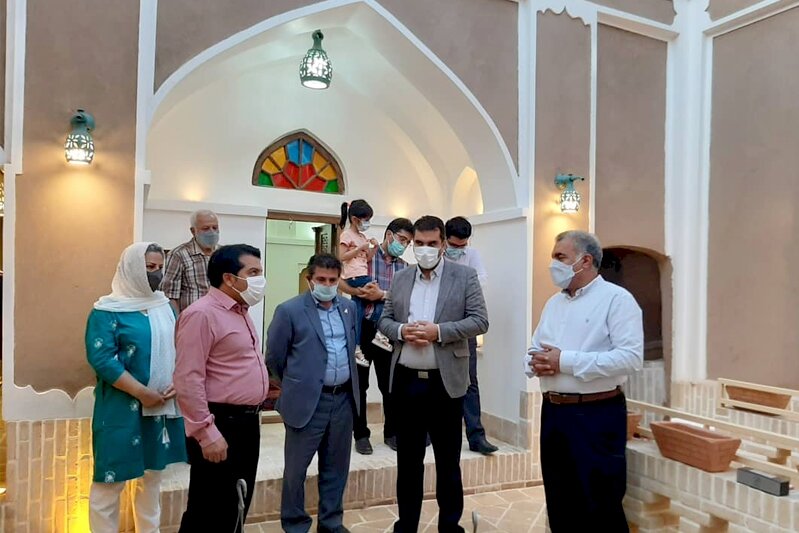Eco-lodge unit comes on stream in oasis town of Ardakan

Tehran- A new eco-lodge unit was inaugurated on Tuesday in the historical texture of Ardakan in Yazd province, a local tourism official said on Tuesday.
The private sector has spent eight billion rials (about $190,000 at the official exchange rate of 42,000 rials per dollar) on the project, Mohammad Mirshamsi said, CHTN reported.
Named Mah-o Mahi, the four-room eco-lodge has a capacity for hosting 13 guests, the official added. “Covering an area of 120 square meters, the eco-lodge unit is expected to generate two job opportunities.”
The creation of eco-tourism resorts can promote rural tourism by attracting travelers to natural areas and indigenous cultures, while at the same time providing the chance to familiarize tourists with customs and cultures, the official explained.
Located in Yazd province, the oasis town of Ardakan is a living testimony to the intelligent use of limited available resources in the desert for survival. Water is brought to the city by the qanat system. Each district of the city is built on a qanat and has a communal center.
The use of earth in buildings includes walls and roofs by the construction of vaults and domes. Houses are built with courtyards below ground level, serving underground areas. Wind-catchers, courtyards, and thick earthen walls create a pleasant microclimate.
The word Ardakan in Persian means "holy place" or "clean place" (Modern Persian: arda+kan / Middle Persian: arta+gan) and the city has many historical religious attractions such as the Grand Mosque of Ardakan (Masjed-e Jame’), Zire-deh Mosque, Emam-Zadeh Mir Seyyed Mohammad and Tekyeh bazaar.
The region is one of the Zoroastrian centers of Iran, and there are numerous holy sites for Zoroastrians in Sharif-Abad, a village near Ardakan. Each summer thousands of Zoroastrians from around the world gather there for pilgrimage.
The tourism ministry has set a target to help build 2,000 eco-lodges by 2021, believing such guest houses could cater to sustainable development and job creation in the countryside and rural areas. Experts say each eco-lodge unit generates jobs for seven to eight people on average so that the scheme could create 160,000 jobs.
The culturally diverse country never disappoints visitors when it comes to eco-tourism, sightseeing, and even tribal tourism as it is home to many regional people including ones with Turk and Arab elements in addition to the Kurds, Baloch, Bakhtyari, Lurs, and other smaller minorities such as Armenians, Assyrians, Jews, and others.
ABU/AFM
Leave a Comment